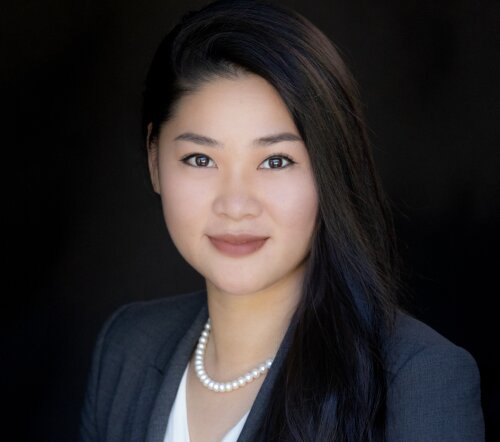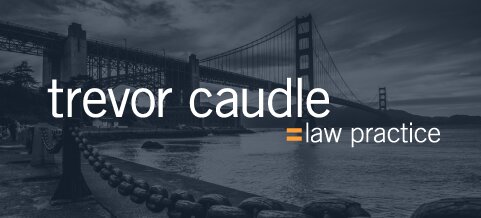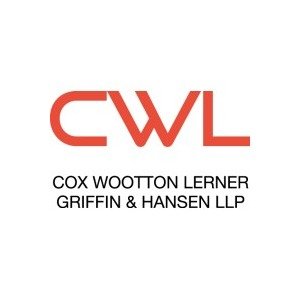Best Antitrust Litigation Lawyers in San Francisco
Share your needs with us, get contacted by law firms.
Free. Takes 2 min.
List of the best lawyers in San Francisco, United States
About Antitrust Litigation Law in San Francisco, United States
Antitrust litigation is a branch of law designed to promote fair competition and protect consumers and businesses from unfair practices such as monopolization, price fixing, market allocation, and other anti-competitive conduct. In San Francisco, as in the rest of the United States, antitrust laws are primarily driven by federal statutes like the Sherman Act and the Clayton Act, supported by state-level laws enforced through both courts and government agencies. As a business and technology hub, San Francisco often sees a significant level of antitrust activity involving sectors like technology, healthcare, and finance. Antitrust litigation can be highly complex, involving regulatory investigations, class actions, civil claims, and even criminal prosecutions.
Why You May Need a Lawyer
Dealing with antitrust issues in San Francisco may require professional legal assistance due to the complexity of the laws and the high stakes involved. Some common scenarios where individuals or organizations may need a lawyer include:
- Receiving a government investigation or subpoena related to alleged antitrust violations
- Facing lawsuits claiming monopolistic or anti-competitive practices
- Suffering from unfair practices by larger competitors, such as price fixing or exclusive dealing
- Pursuing a merger or acquisition that may raise antitrust concerns from regulators
- Defending against class actions alleging harm from market manipulation
- Needing to understand antitrust compliance in housing, labor markets, or digital platforms
- Seeking to recover damages due to anti-competitive conduct by others
An experienced antitrust attorney can provide advice on compliance, represent you in negotiations or court, and communicate effectively with government authorities.
Local Laws Overview
In San Francisco, antitrust litigation is shaped by a combination of federal and California state laws. Federal laws include the Sherman Act, which prohibits monopolization and restraints of trade, and the Clayton Act, which addresses mergers and other practices affecting competition. The Federal Trade Commission Act also plays a key role at the federal level.
California has its own antitrust statute, known as the Cartwright Act, which is similar to the Sherman Act but may offer broader protections in some cases. The state also enforces the Unfair Competition Law, which prohibits unlawful, unfair, or fraudulent business acts. Local enforcement is carried out by the California Attorney General’s Office and, for city-level issues, the San Francisco City Attorney. Plaintiffs can seek both damages and injunctive relief through the courts. Key features of local antitrust law include class action provisions, treble damages (triple damages), and a broader scope for unfair competition claims compared to federal law.
Frequently Asked Questions
What is antitrust litigation?
Antitrust litigation refers to legal actions taken to challenge or defend against alleged violations of laws that promote fair competition and prevent monopolistic or anti-competitive behavior.
Who enforces antitrust laws in San Francisco?
Antitrust laws are enforced by federal agencies, including the Department of Justice (DOJ) and Federal Trade Commission (FTC), as well as the California Attorney General and, in some cases, the San Francisco City Attorney.
What types of business practices are considered antitrust violations?
Common violations include price fixing, bid rigging, market allocation, monopolization, tying arrangements, and exclusive dealing that restrains competition.
Can individuals or small businesses bring an antitrust claim?
Yes. Both individuals and businesses can file antitrust claims if they suffer harm due to anti-competitive practices.
What damages are available in an antitrust lawsuit?
Victims may recover actual damages, which can be tripled under federal and California antitrust laws. Courts may also grant injunctive relief to stop unlawful behavior.
How long do I have to file an antitrust claim in California?
The statute of limitations for most antitrust claims is four years from the date the violation occurred. There may be exceptions or tolling based on specific circumstances.
How are class actions handled in antitrust cases?
Many antitrust cases are filed as class actions, allowing individuals or businesses with similar claims to join together. Certification of the class is required by the court.
Are criminal penalties possible for antitrust violations?
Yes. Serious violations such as price fixing or bid rigging can result in criminal charges, leading to fines and, in some cases, imprisonment.
What should I do if my business is under investigation for an antitrust violation?
Consult immediately with an experienced antitrust attorney before responding to investigators or producing documents. Prompt, informed action is crucial in such situations.
Can mergers or acquisitions trigger antitrust scrutiny?
Yes. Large or anti-competitive mergers may be reviewed by federal or state authorities to ensure they do not harm competition or consumers.
Additional Resources
Several governmental bodies and organizations can provide information or assistance regarding antitrust litigation in San Francisco:
- United States Department of Justice Antitrust Division
- Federal Trade Commission (FTC)
- California Department of Justice, Office of the Attorney General, Antitrust Section
- San Francisco City Attorney's Office
- American Antitrust Institute
- State Bar of California - Antitrust and Unfair Competition Law Section
- Local law schools and public law libraries for research and referral services
Next Steps
If you believe you are affected by an antitrust issue or are facing litigation in San Francisco, consider taking the following steps:
- Document all relevant facts, contracts, communications, and potential evidence
- Avoid making statements or producing documents before consulting an attorney
- Contact a qualified antitrust litigation lawyer experienced in both federal and California law
- Ask about initial consultations, which are often free or low-cost
- Research your attorney’s qualifications and experience in antitrust matters
- Consider reaching out to governmental resources for additional guidance
Navigating antitrust litigation can be complex, but with the right legal assistance you can better protect your rights and interests in San Francisco’s dynamic business environment.
Lawzana helps you find the best lawyers and law firms in San Francisco through a curated and pre-screened list of qualified legal professionals. Our platform offers rankings and detailed profiles of attorneys and law firms, allowing you to compare based on practice areas, including Antitrust Litigation, experience, and client feedback.
Each profile includes a description of the firm's areas of practice, client reviews, team members and partners, year of establishment, spoken languages, office locations, contact information, social media presence, and any published articles or resources. Most firms on our platform speak English and are experienced in both local and international legal matters.
Get a quote from top-rated law firms in San Francisco, United States — quickly, securely, and without unnecessary hassle.
Disclaimer:
The information provided on this page is for general informational purposes only and does not constitute legal advice. While we strive to ensure the accuracy and relevance of the content, legal information may change over time, and interpretations of the law can vary. You should always consult with a qualified legal professional for advice specific to your situation.
We disclaim all liability for actions taken or not taken based on the content of this page. If you believe any information is incorrect or outdated, please contact us, and we will review and update it where appropriate.
















